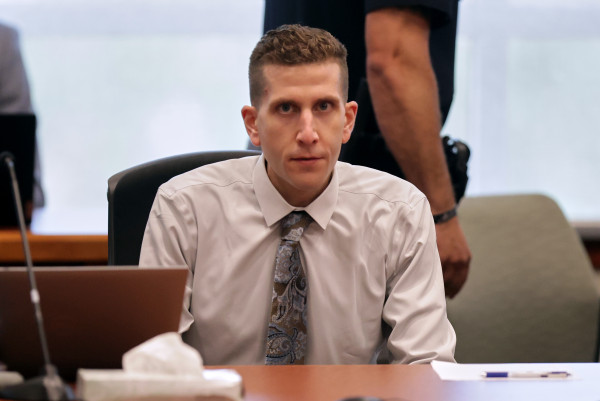“An eye fixed for a watch solely finally ends up making the entire world blind.” That quote, usually attributed to Mahatma Gandhi, stored operating by way of my head as I learn social media reactions associated to the plea deal of Bryan Kohberger, who was charged with the 2022 murders of a number of college students on the College of Idaho.
Many of the responses relating to the plea settlement, which spared Kohberger the potential of a demise sentence, revolved across the want for revenge and reciprocated violence—within the identify of justice. Regardless of all events concerned agreeing to the plea, many on social media had been outraged. As an legal professional, I dislike the general public’s makes an attempt to affect resolutions in prison instances, notably the place they’re restricted of their data of each the case info and the authorized system.
A prison learning criminology
Within the early morning hours of Nov. 13, 2022, College of Idaho college students Kaylee Goncalves, Madison Mogen, Xana Kernodle and her boyfriend Ethan Chapin had been stabbed to demise in an off-campus residence shared by the three ladies. Two different roommates, Bethany Funke and Dylan Mortensen, had been unhurt.
With no obvious motive or suspect, native legislation enforcement and the college did their finest to assemble proof and start their investigation. Nevertheless, official info was restricted.
Moreover, the household of the victims pleaded with authorities to launch info relating to the investigation, with Chapin’s father imploring “officers to talk the reality, share what they know, discover the assailant and defend the larger group.”
Nevertheless, as former Washington State College Police Chief Gary Jenkins precisely identified, investigators don’t need to launch an excessive amount of info and threat a leak to a suspect.
Or worse.
Legislation enforcement requested the general public present any video of the crime-scene residence and the encompassing space recorded across the time of the murders. One tip contained video of a white or light-colored Hyundai Elantra making a number of passes close to the residence on the time in query. Surveillance footage confirmed an analogous automobile driving in the identical sample after which rushing away from the victims’ neighborhood.
The automobile’s make and mannequin led legislation enforcement to Kohberger, a criminology PhD pupil and educating assistant at Washington State College. Federal investigators used DNA recovered from a tan, leather-based knife sheath on Mogen’s mattress to match potential matches in ancestral genealogical web sites GEDmatch and MyHeritage.
Though this tactic proved useful for the investigation, it additionally violated a Justice Division coverage that mandates investigators solely use DNA databases “that present express discover to their service customers and the general public that legislation enforcement might use their service websites.”
Regardless, Kohberger was arrested and charged with the 4 murders. The prosecution selected to hunt the demise penalty, and the case proceeded to trial.
That’s, till the plea deal was reached.
The general public doesn’t know what they don’t know
A lot of the data most of the people obtained about Kohberger and his crimes got here from the web and true crime documentaries. As I famous, the social media response was intense and very polarizing. Native media shops reported on the investigation, with one saying, “Tik Tockers, psychics and folks throughout social media apps” had been “spreading misinformation and rumors” across the investigation, whereas police pleaded with the general public to belief verified info.
When Kohberger’s plea was introduced, I needed to surprise how many individuals voicing their complaints had been educated on the info of the case, and in that case, the place they’d obtained their info.
I can safely say that the general public was not aware about all of the info and proof. Earlier than anybody goes half-cocked on that assertion, please understand that hardly ever, if ever, does the citizenry have all of the data associated to a prison case. That’s how the system is meant to work.
Many on the market, together with some training attorneys, might imagine that something aside from whole and full transparency is a travesty. Nevertheless, those that have lived by way of a prison trial are nicely conscious of the evidentiary elements that decide how and which info turn out to be public.
Plea bargains are a needed a part of the justice system
This disconnect is why I get labored up over the backlash geared toward any potential plea settlement that may resolve a pending prison case. Except you might be litigating the matter for the prosecution or the protection, you don’t know all of the info.
That goes for judges as nicely. Certain, they have to evaluate particular factual points that come into battle all through the case; in any case, they’re the gatekeepers of relevance. Furthermore, there are occasions when a specific statute would possibly preclude sure proof primarily based on the events’ perceptions. If the events can’t agree on the statute’s utility, a decide should resolve that disagreement.
Nonetheless, judges usually don’t know all of the proof, as a result of not all of the proof in discovery is utilized by the events at trial. This lack of information is particularly pronounced when a prison case has not but reached pretrial litigation. Nonetheless, I’ve had conditions the place a decide refused to simply accept a plea settlement that may resolve a prison case with out a jury trial.
In a single occasion, I had a plea initially rejected by a state courtroom decide as a result of he wished affirmation that the accusing witness’ household permitted of the decision. Each the prosecution and I argued that the relevant legislation in Oklahoma doesn’t require the household to approve of the plea; the sufferer and their representatives should solely be made conscious of the decision, and upon request, be provided a chance to be heard. That decide was unfamiliar with the info of the case. These witnesses didn’t want to be heard in courtroom. He was unaware of the prosecution’s points with their proof and the truth that a plea was the one assured choice for the household to obtain closure.
The purpose is fairly easy: The prosecution in a prison case represents the folks of a jurisdiction; it doesn’t characterize random critics on social media. And it doesn’t characterize the victims or their households. Many of the uninitiated don’t perceive this maxim. Prosecutors generally overlook it.
Regardless, all of us want to understand it.

Adam Banner
Adam R. Banner is the founder and lead legal professional of the Oklahoma Legal Group, a prison protection legislation agency in Oklahoma Metropolis. His follow focuses solely on state and federal prison protection. He represents the accused towards allegations of intercourse crimes, violent crimes, drug crimes and white-collar crimes.
The examine of legislation isn’t for everybody, but its follow and process appear to permeate popular culture at an growing price. This column is concerning the intersection of legislation and popular culture in an try to separate the actual from the ridiculous.
